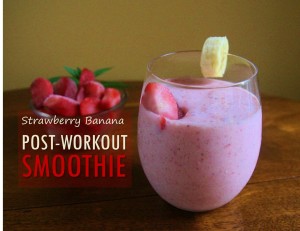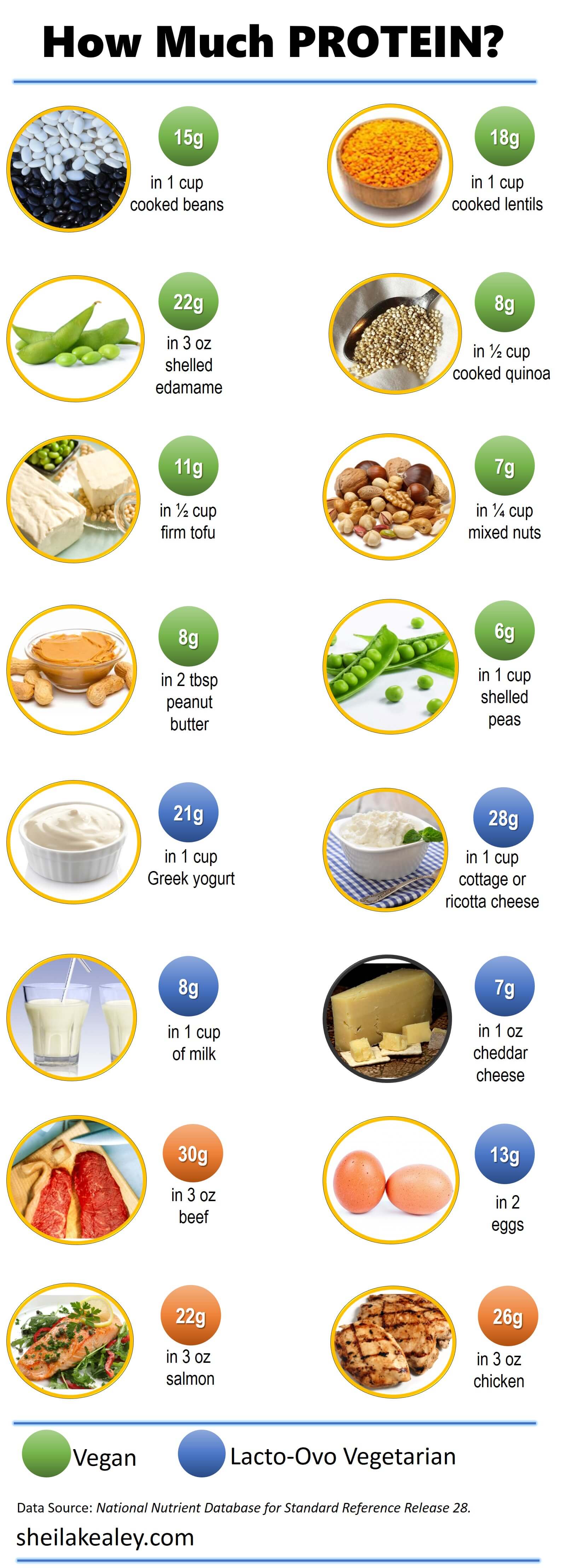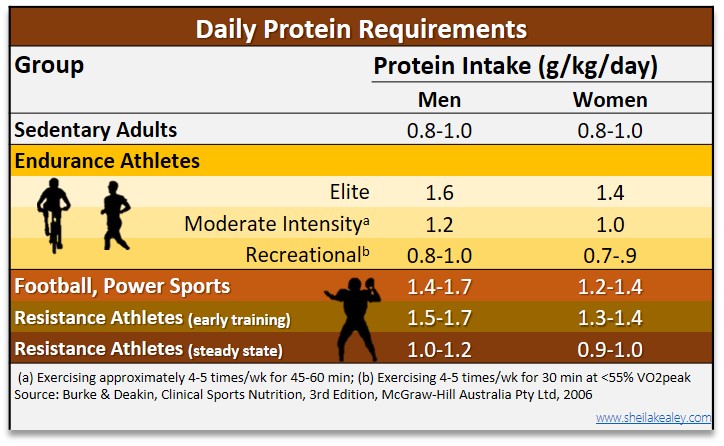Protein is essential for life and an important part of every cell in our bodies. The building blocks of protein, amino acids, are needed to repair cells, build and repair muscles, and to make hormones, enzymes, and antibodies. Protein can also influence our immune function and metabolism.
THIS CHART gives you an idea of how much protein you’ll find in a variety of foods.
How Much Protein Do You Need?
The amount of protein that you need depends on your age, weight, and how active you are. The Recommended Dietary Allowance for protein is 0.8 grams per kilogram per day (or 0.36 g per pound) for adults; children need more because they are still growing. This works out to about 45 g/day for a 125-lb (57 kg) adult, 55 g for a 150-lb (68 kg) adult, and 65 g for a 180-lb (82 kg) adult.
But new research is showing that this estimate might be on the low side, particularly for certain groups of people (athletes, older individuals).
THIS CHART shows suggested daily protein intakes based on your activity level.
Does it Matter When I Eat Protein?
 Yes. Your body can only store and use a small amount of protein at a time, so when you eat protein influences how your body uses it.
Yes. Your body can only store and use a small amount of protein at a time, so when you eat protein influences how your body uses it.
Most people tend to consume enough protein, but the way it’s typically distributed throughout the day isn’t optimal for muscle building or repair.
Your body needs about 20 to 30 grams at a time for muscle building processes: most people don’t consume this amount in the morning, but eat two to three times the amount they need at dinner.
Eating large amounts of protein at one sitting doesn’t help muscles, as it’s not “saved for later” like carbohydrates or fat are, but used for energy or stored as fat. So, although someone could be getting the amount of protein they need in a day, because it’s not properly distributed, they aren’t getting what their body needs.
Build a Better Breakfast
Breakfast is likely the meal where you are falling short, so consider adding Greek yogurt, eggs, cottage cheese, or other high-protein foods to meet your protein needs. Or try this nutritious breakfast, one of my favourites!
More Information on Protein Intake
This article provided a brief overview, but for more information on optimal protein intake, best ways to meet your protein requirements, what a day’s worth of protein looks like, protein distribution, and protein supplements, read this article.
Share This:
